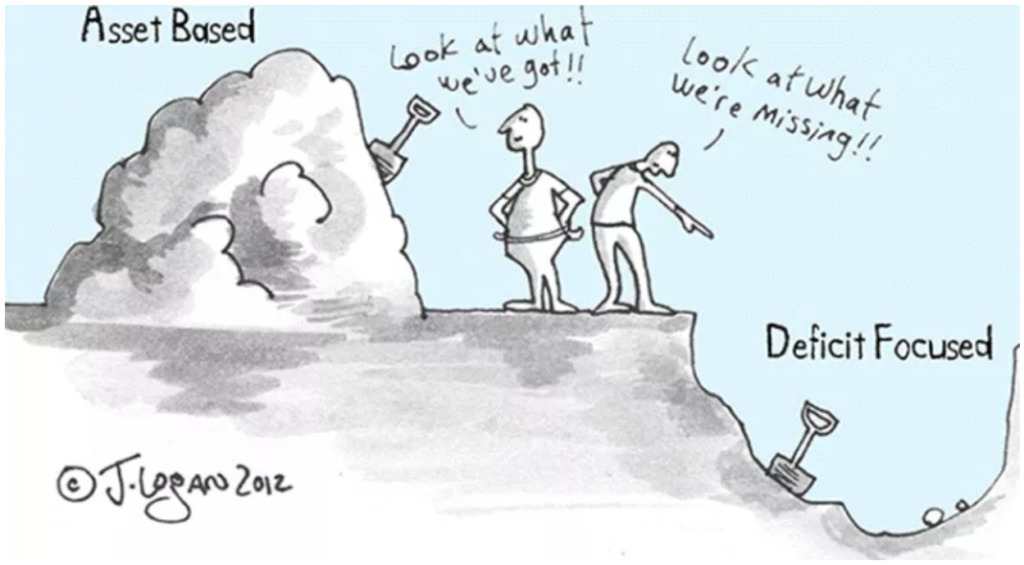After a three year hiatus, the Not-For-Profit People Conference was back with a bang last week. With two days full of inspirational speakers, the plenary hall was packed with excited attendees, ready to network, ask questions and find answers to some of their most pressing people challenges.
With more than 20 speakers and presenters, it’s difficult to pick the best takeaways from the conference, but here are four things the EthicalJobs.com.au team learned:
1. Culture shapes performance
James Healy is Principal for Human Capital at Deloitte and host of “The B-Word”, a podcast – and was one of our panellists on day two, helping to answer the question ‘What makes a high performing NFP Organisation?’
James talks about the evidence that an organisation’s culture and environment – “how we do things around here” – overwhelmingly influences people’s behaviour, and therefore organisational culture. Traditional approaches to organisational culture based on values are often unsuccessful. Humans don’t behave the way we think they should – we’re not as rational or logical as we like to think and there’s a pervasive intention-action gap.
That means our role as leaders in any organisation is to focus on the environment we create – and make practical, tangible changes to shape a positive, productive environment.
James concluded by saying if we create the right environment and culture for employees to thrive, we can influence their behaviour and as a result, their performance.
2. Make vulnerability and empathy your super powers
As General Manager at ChildSafe Australia, Neil Milton has used his 20+ years experience in the NFP sector to shape the way he leads.
Leaders in the workplace set the tone of what’s expected in an organisation. Unlike a superhero wearing a mask, Neil highlighted the importance of “taking your mask off” at work, letting your colleagues see your vulnerability and giving permission for them to do the same.
By showing your real self at work (the good and the bad) you can foster trust in your staff and prevent burnout and turnover.
Neil showed that vulnerability and empathy work by drawing examples from his own experience as a leader. By actively listening and giving his team his full attention, he allows them staff to feel seen and understood.
To build empathy and vulnerability within a team, he suggested using a tool called the Johari Window, a self-awareness tool that can also be used to build trust by disclosing information about yourself.
Finally, he invited the audience to “imagine a workplace where your staff don’t feel like a number and they know that their leaders appreciate them for who they are, not just what they do.”
3. Get the best out of your team by using a whole-of-person approach to performance
Kaylene Idda from Animals Australia used her session to discuss a fresh perspective on performance management by stepping away from traditional “box-ticking” performance management processes and using positive psychology theories to lead your staff and help get the best out of them.
Kaylene suggested that “we lead people but manage things.” People shouldn’t be managed in a one-size-fits-all manner. That means avoiding a “checklist” approach to performance management, and rather seeking to understand each person in a team as an individual and identify what motivates them.
By using this approach, Kaylene encourages managers and P&C leaders to support people to achieve their full potential by using guiding questions to understand what people want to do, not just in your organisation, but fully understand their goals and what that could mean for them in the future. At Animals Australia, this allowed for staff to show up to work as their best selves, engaged, and ready to take anything on.
4. Try adding ‘appreciative inquiry’ to your leadership toolbox
Sophi Bruce from the University of Technology Sydney and Adaptive Leadership Australia provided a tool-box of leadership tools for attendees in her 2-hour workshop. One of them is called ‘appreciative inquiry‘.
If we want to improve performance, our default position is often to ask what’s not working.
An alternative approach is to start with what is already working, and build on it. Appreciative Inquiry searches for the solutions that already exist. One benefit of this approach is that people more actively engage in talking about their successes and what works.
This cartoon that Sophi shared summarises it succinctly:

Sophi shared this table of questions to ask – either of yourself or of your team – based on the principles of Appreciative Inquiry:
Traditional problem solving
What is going wrong?
What are the causes for the problems?
How did things get so bad?
Who/what is to blame?
What do we fix?
Appreciative Inquiry
What is going right?
What are the causes for the successes?
What have we learned?
Who/what gives us strength and life?
What can we imagine?
Do you have a valuable takeaway from the NFP People Conference that you’d like to share? Please do in the comments below!
Related Posts
- How to address vicarious trauma, compassion fatigue and burnout in your workplace
- “Clarity, optimism, tenacity and persistence” – Leadership lessons from Lin Hatfield Dodds, CEO of The Benevolent Society
- Want to speak or present at the 2023 Not-For-Profit People Conference?
- Need to convince your boss that attending the 2020 Not-For-Profit People Conference is essential? Here’s how




One Comment, RSS